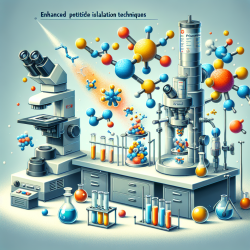The landscape of special education is continually evolving, influenced by societal changes and academic insights. One such influential figure is William James, whose psychological theories offer a rich tapestry of ideas that can be woven into the fabric of special education practices. His work provides a framework for understanding ideological differences and encourages listening to diverse perspectives—a crucial skill for practitioners navigating the complexities of special education today.
The Relevance of William James's Insights
William James was a pioneer in psychology who emphasized the importance of understanding the sentiments underlying different worldviews. His concept of "the sentiment of rationality" suggests that each person's beliefs are deeply rooted in their personal experiences and emotional responses. For special education practitioners, this insight is invaluable. It encourages educators to look beyond surface-level disagreements with parents or colleagues and seek to understand the emotional and experiential roots of differing viewpoints.
In the context of special education, where collaboration with parents and other professionals is essential, adopting a Jamesian approach can facilitate more effective communication and problem-solving. By acknowledging the diverse experiences that shape each stakeholder's perspective, practitioners can foster a more inclusive and supportive educational environment.
Addressing Therapist Shortages with Practical Idealism
The shortage of therapists in school districts is a pressing issue that impacts the quality of services provided to students with special needs. William James's concept of "practical idealism" offers a pathway forward. This approach involves setting ambitious goals while remaining grounded in the realities of current constraints. For example, schools might leverage technology to provide remote therapy sessions or collaborate with local universities to create internship programs that bring new therapists into the field.
By applying practical idealism, special education directors can develop innovative solutions that address therapist shortages without compromising on service quality. This approach aligns with James's philosophy of balancing bold aspirations with humility and adaptability in the face of limitations.
Rethinking the American Dream in Education
The COVID-19 pandemic has prompted a reevaluation of many societal norms, including the concept of the American Dream. Traditionally associated with material success, this dream can be reimagined within the educational sphere to focus on equitable access to learning opportunities for all students. James's insights encourage educators to challenge existing paradigms and consider how educational practices can evolve to meet the needs of a diverse student population.
For special education practitioners, this means advocating for policies that prioritize inclusivity and equity. It involves recognizing the systemic barriers that prevent some students from achieving their full potential and working collaboratively to dismantle these obstacles. By embracing a redefined American Dream centered on educational equity, practitioners can contribute to broader social transformation.
Encouraging Further Research and Application
The ideas presented by William James offer a wealth of opportunities for further exploration and application within special education. Practitioners are encouraged to delve deeper into his work and consider how his insights can inform their practice. Engaging in professional development opportunities such as conferences and webinars can facilitate this exploration.
Furthermore, collaborating with academic institutions to conduct research on the application of Jamesian principles in educational settings can yield valuable insights. Such research could explore how these principles impact student outcomes or enhance collaboration among educators and families.
To read the original research paper titled William James and the Sustainable Transformation of Values, with a Case Study for Rethinking the American Dream, please follow this link.










